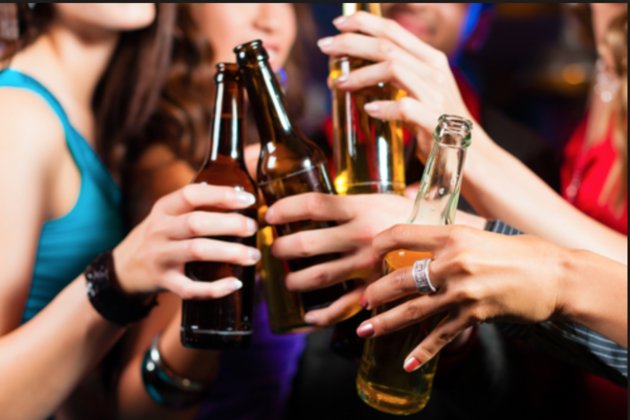By Kathryn Crowley
My mother told me when I was a toddler she found me puffing on a cigarette butt that I had picked up off the street. Monkey see, monkey do; my dad was a smoker at the time.
This is is no excuse for the fact that aged 14, I began stealing cigarettes which led to buying them. Since my teens I have quit a few times-sometimes for as long as two years, but it took many attempts to cease permanently.
Now I don’t believe for one minute that everyone has to give up all their unhealthy habits. Some people get away with having the ‘odd one’ to live long, healthy lives. In my own case, finally making the decision to quit was not under a New Years’ Resolution.
From Cavan to Manhattan, setting New Year Resolutions has become a cultural norm. The Babylonians started the practice 4000 years ago. Isn’t it odd that we continue mimicking that tradition during our coldest season?

Think about it. In Winter, animals stockpile food. As humans, we often eat more in Winter too, so could it be counter-productive to make major dietary or lifestyle changes at this time of year? Trees and plants seem dormant, waiting for milder weather. Migrating creatures are soaking up sunshine abroad and locally, many have grown thicker fur as insulation.
We are part of the animal kingdom too. There are primal and practical reasons as to why we embrace extra food, layers of clothing and hot drinks! The question is, could you live without those drinks?
Addiction is very different to indulging every now and then. You probably know in your heart if you have a problem. Bouts of self-loathing after overdoing things (again) is a good indicator. Your emotions can offer clues if you pay attention to them.
In a little anonymous survey compiled for this feature, males and females aged 21-80 stated that they have experienced problems with smoking either tobacco, weed or hash, alcohol, sugar, sex, eating late at night, work (including difficult volunteer work) and fast food.
Phones weren’t mentioned, yet half the population of Ireland seems to walk around looking at a screen; are we addicted? Researchers have found that heavy smartphone use increases stress, anxiety and depression, as well as being linked to heightened attention deficit disorder (ADD). The more time we spend scrolling, the shorter our attention span and the more frazzled we become.

Smoking a joint is one of the most common self-soothers. As a common drug, many have cited smoking it as a great anxiety reliever. Yet what motivates people to quit? I asked the reasons why people wanted to quit the habit. Here are some of the responses:
“I had developed too heavy a dependency.”
“To stop affecting my moods.”
“It’s too expensive.”
“I felt numb and alone.”
“For my health.”
“My partner doesn’t do it.”
“To save money.”
“I want to have a baby sometime in the future and not have to go through quitting then.”
“To lose weight and stop eating junk food after.”
“For the good of my mental health.”
“Dependency interferes with my life, relationships, my health and moods.”
“It causes insomnia.”

Sometimes the consequences of our actions while ‘under the influence’ can be a disaster. If you have a problem with addiction, you most certainly are not alone. The good news is that you can join the millions of people around the world who get support. From the perspective of Ayurveda (the science of yoga), Spring is a good time to make changes.
Each person’s journey is very personal, so you might want to explore a few options to find what suits you best. Anything is possible. Research psychologist Gene Heyman found that in people who had addictions (in their teens and 20s), 60% to 80% of them had no substance dependency in their 30s.
Below is a list of helpful resources, should you decide to address any habits that are affecting your life. It takes time to form new, healthier ways of being, so don’t be hard on yourself. After all, in the words of James Joyce “all mistakes are portals of discovery”.

UL Counselling Phone 061-202327
Email: counselling@ul.ie
Location: CM-073 (Next to the Student Health Centre)
https://www.facebook.com/UlCounsellingService
Saoirse Addiction Centre, Limerick
https://www.saoirse.ie/home.html
Alcohol:
https://www.alcoholicsanonymous.ie/
Drugs:
Food issues:
http://www.overeatersanonymous.ie/
Gambling:
https://www.gamblersanonymous.ie/
Mental health:
Relationships:
Smoking:
https://spunout.ie/health/category/smoking
https://www.quit.ie/Smoking-and/Young-people/
https://www.cancer.ie/prevention/X-HALE
Kathryn Crowley is a yoga teacher, writer and MA student of Sociology.
Most of her work is offline, but you can find her news on Instagram @EmeraldislandKath,
www.yogakathryn.com and https://www.facebook.com/YogaKathryn/
![]()


